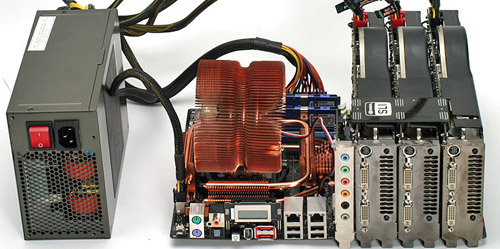BarCamps, Startup Weekends, Coworking, Panera, Starbucks, Ritual Roasters - all places typically flooded with Wi-Fi and laptop-toting patrons. Over the last five years, the increasing prevalence of wireless networking and the advancement of smaller and more mobile laptops have led to a stunning laptop adoption rate.
Recently I have been thinking about this a lot. I believe a tipping point has been reached in the last year or two. With the exception of certain use cases such as video production, servers and gamers/hardcore PC enthusiasts, laptops are undoubtedly taking over. For example, the MacBook is Apple's top selling computer, all incoming Georgia Tech freshman are required to have a laptop computers and so on.
Yes, desktops are dying.

Recent advances in processor technology and mobile chipsets are to thank for this. Intel's breakthrough (at the time, and even still) Centrino initiative that bundles a power efficient processor, motherboard chipset and wireless network adapter, further marks laptops as capable mobile machines. And now with dual-core and soon quad-core processors in addition to solid-state disks making their way into laptops, the performance gap between desktops and laptops isn't so gargantuan anymore. I haven't found much that I can't do on my MacBook Pro with the obvious exception of playing Crysis with the settings maxed out.. for that would need a triple SLI beast.
No, they're still alive and kicking.
 Image from bit-tech.net.
Image from bit-tech.net.
Laptops are typically more expensive than their desktop counterparts and it seems this will always be the case. The question is how much consumers value mobility. From my own experiences, the answer to this is that consumers value mobility considerably but then again my point of view is biased as I generally hang around with the tech-savvy, Apple-loving crowd.
Speed is easier to attain with desktops. There's more space for larger hard drive platters, faster Blu-ray burners, full-size DDR3 DIMMs, multi-processor configurations, et cetera. Also, bleeding-edge technology is almost always only available for desktops at first. Desktops are sort of the test-bed for the latest tech before engineers can find a way to make them consume less power and produce less heat all while being half the size, and thus be fit for mobile usage.
Verdict
Where do you stand on this? I am a strong advocate for mobility and laptops, as I write this at home sitting somewhat half on the couch, half on the floor. I appreciate being able to have my primary computer anywhere I go and should I need the desktop feel, just attach a keyboard, mouse and larger external display. I can take my laptop to classes or compute anywhere for that matter, while retaining 90-95% of a typical modern desktop computer's performance. Of course, my PC enthusiast roommate will disagree with me with his single-stage (for now) vapor phase change cooled quad-core 4.4GHz desktop computer.